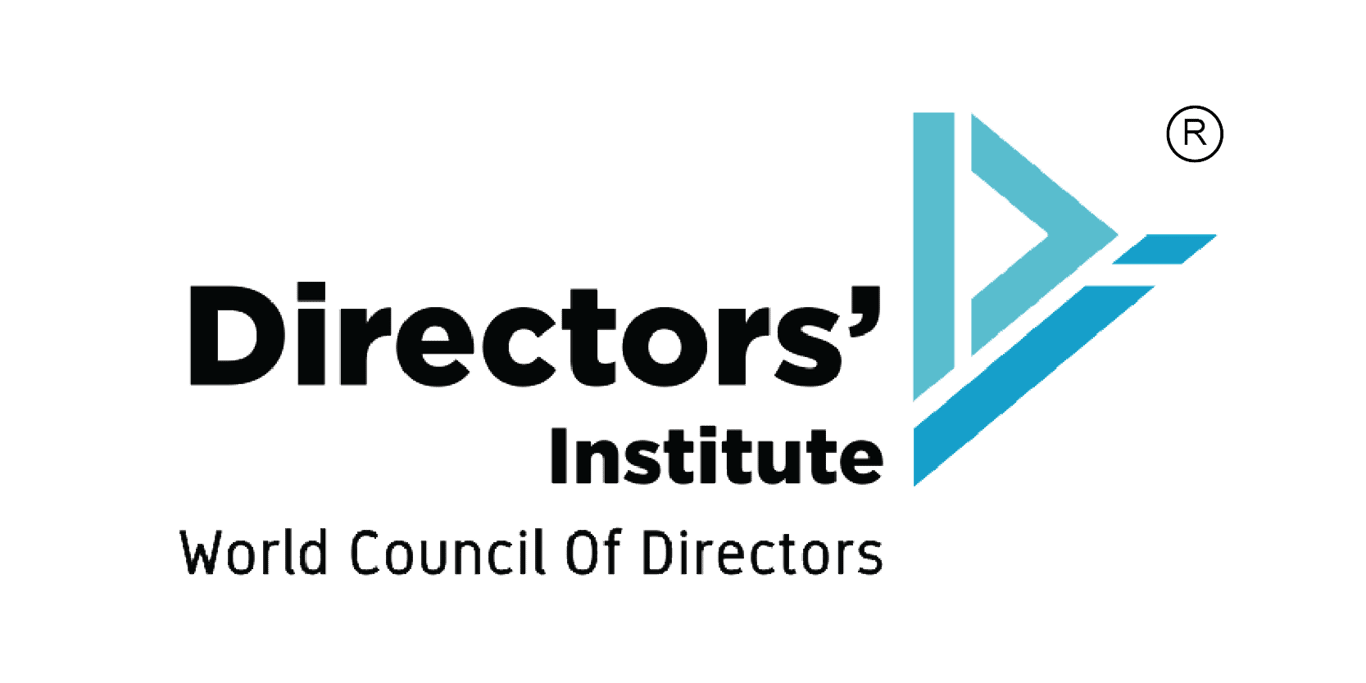





The course teaches students comprehensive and specialised subjects in entrepreneurial leadership and management for various business situations; it develops skills in critical thinking and strategic planning for changing and fast-paced environments, including financial and operational analysis; and it develops competences in leadership, including autonomous decision-making, and communication with employees, stakeholders, and other members of a business. These generalized MBA insights are firmly rooted in a curriculum focused on innovation, social entrepreneurship, finance, and technology. Specialised MBA programmes aims to refine the expertise in the specific field.
Target Audience
Ages 19-30, 31-65, 65+
Target Group
The course is suited for executives and general business managers in organisations of all sizes and types, or for those who will soon move into such management positions. It is designed for those that will have responsibility for planning, organising, and directing business operations. Some of the specific pathways will have associated audiences.
For example the MBA in International Business is suited for executives and general business managers, or aspirants to these roles, who work in organisations with global reach and need to enhance their understandings of internationalisation and cross-cultural aspects of work and business.
Similarly, the MBA in Technology Leadership is suited for business leaders at the forefront of digital and technological transformation in their organisations.
In all cases, the target group should be prepared to pursue substantial academic studies fitting to the MQF level.
Mode of attendance
Full-Time and Part-Time
Structure of the programme
Please note that this structure may be subject to change based on faculty expertise and evolving academic best practices. This flexibility ensures we can provide the most up-to-date and effective learning experience for our students.
Full-Time: 50 Weeks, 1 Year, or 3 Semesters (2250 hrs at ~45 hrs/week)
Semester I (~17 weeks): Tier One Foundational modules (30 ECTS, 750 hrs) result in 1 semester of coursework (~45 hrs/week)
Semester II (~17 weeks): Tier Two Specialisation modules (30 ECTS, 750 hrs) result in 1 semester of coursework (~45 hrs/week)
Semester III (~17 weeks): Tier Three Capstone module (30 ECTS, 750 hours) results in 1 semester of coursework (~45 hrs/week)
Part-Time: Up to 250 Weeks, 5 Years, or 15 Semesters (2250 hrs at <9 hrs/week)
Semester I (~17 weeks): Tier One Foundational module (3 ECTS, 75 hrs) at ~4.5 hrs/week
Semester II (~17 weeks): Tier One Foundational module (3 ECTS, 75 hrs) at ~4.5 hrs/week
Semester III (~17 weeks): Tier One Foundational module (3 ECTS, 75 hrs) at ~4.5 hrs/week
Semester IV (~17 weeks): Tier One Foundational module (3 ECTS, 75 hrs) at ~4.5 hrs/week
Semester V (~17 weeks): Tier One Foundational module (3 ECTS, 75 hrs) at ~4.5 hrs/week
Semester VI (~17 weeks): Tier One Foundational module (3 ECTS, 75 hrs) at ~4.5 hrs/week
Semester VII (~17 weeks): Tier One Foundational module (3 ECTS, 75 hrs) at ~4.5 hrs/week
Semester VIII (~17 weeks): Tier One Foundational module (3 ECTS, 75 hrs) at ~4.5 hrs/week
Semester IX (~17 weeks): Tier One Foundational module (3 ECTS, 75 hrs) at ~4.5 hrs/week
Semester X (~17 weeks): Tier One Foundational module (3 ECTS, 75 hrs) at ~4.5 hrs/week
Semester XII (~17 weeks): Tier Two Specialisation module (10 ECTS, 250 hrs) at ~15 hrs/week
Semester XIII (~17 weeks): Tier Two Specialisation module (10 ECTS, 250 hrs) at ~15 hrs/week
Semester XIV (~17 weeks): Tier Two Specialisation module (10 ECTS, 250 hrs) at ~15 hrs/week
Semester XV (~17 weeks): Tier Three Capstone module (30 ECTS, 750 hours) at ~45 hrs/week
Grading System - Scale: 0-100 points - Components: 60% of the mark derives from the average of the assignments, and 40% of the mark derives from the cumulative examination - Passing requirement: minimum of 60% overall
Dates of Next Intake - Rolling admission
Pass rates - 2023 pass rates will be publicised in the next cycle, contingent upon ensuring sufficient student data for anonymization.
Identity Malta’s VISA requirement for third country nationals: https://www.identitymalta.com/unit/central-visa-unit/






This module explores the key concepts of marketing and how they fit into the larger context of management strategy and operational decisions. It presents both the practical 'how' and the fundamental 'why' of marketing activities in the light of contributions from behavioural science, economics, and statistics. The module provides managers and business leaders with the understanding needed to manage and lead those who implement the marketing activities; the module provides concepts and processes for business leaders that seek to continue developing through future experiences or coursework in marketing.
The module then focuses on managing processes. Theoretically, it models business functions as a network of actions that convert inputs into outputs. Process design is considered, including the volume and variety of system inputs and outputs - especially with respect to goods and services. Different inventory management and logistic systems are explored. Finally, forecasting and process optimisation are explored, strengthening managers ability to operate with finite resources.






This module enables students to develop the skills and concepts needed to ensure the ongoing contribution of a firm's operations to its competitive position. It helps them to understand the complex processes underlying the development and manufacture of products as well as the creation and delivery of services. Throughout the module, students will receive a comprehensive overview of technology utilisation to drive a competitive advantage for company operations. Students explore various technology solutions for business process automation, including value proposition analysis across organisation functions.
Specific topics addressed include process analysis; cross-functional and cross-firm integration; product development; information technology; and technology and operations strategy.
Additionally, students will analyse how technology can be leveraged to improve product development during the four lifecycle phases. The module provides a detailed overview of the impact of technology on various operating models such as manufacturing, supply chain management, customer-facing, product development, and support functions.








This course covers core concepts in accounting, finance, and microeconomics relevant to running a business.
The course begins with finance for business, including the time value of money, the trade-off between risk and return, and arbitrage. It gives managers a strengthened knowledge in finance that can be applied in their professional careers. The topics covered include how to move cash flows in time, the methods and principles of capital budgeting, valuation of bonds and stocks, how to characterize risk and return, and options pricing with applications to managerial decisions.
The course then builds on the student’s knowledge of finance to introduce accounting and examines the subject from the viewpoint of users external to the organization. Topics include transaction analysis; the accounting cycle; financial-statement preparation, use, and analysis; revenue recognition and cost measurement; present value; and problems in financial-accounting disclosure.
This course concludes with microeconomic theory and its application to problems faced by managers. Topics include supply and demand, consumer behaviour, pricing when a firm has market power, and contracts.








Ethical dilemmas are frequently encountered in the workplace, in every function of the organisation, and at every level. Knowing how to deal with ethical issues is critical in being able to be an effective leader. Additionally, the range and complexity of ethical issues have increased in recent years, as well as expectations of responsible corporate conduct; knowing how to deal with such concerns is an important part of management today.
In this module, students examine how organisations, and individuals within them, can deal with ethical issues and dilemmas at the collective and personal levels. Throughout the module, students will gain skills related to elements of ethical decision-making, the psychological aspects related to business ethics, and ethics in the global marketplace. The module will focus on how business leaders can make ethical decisions, skilfully manage ethical issues in the workplace, and help encourage ethics in a variety of organisations.








This module will approach leadership by identifying practices that researchers and practitioners have shown to be the most effective. Through these processes, students will gain a broad range of skills. This module examines how leaders can most effectively use the resources of their team members to achieve business outcomes. The module develops managerial and leadership competencies, focusing on how key improvements in the general strategy and techniques of managing people can produce outcomes more significant than isolated improvements to employee performance. The module provides students with concepts to support them across their careers as they continue to develop effective delegation, management strategy, and engagement with people inside of an organisation. Specific topics covered include managing a diverse workforce; self-leadership; perception pitfalls; decision making; conflict resolution; emotional intelligence; improving performance; team structure.








In this module students will gain the capacity to understand how firms work in a global context, incorporating a broad, future-oriented, systems-based approach that incorporates data, information and insights from diverse perspectives and sources. This module is designed to convey the key concepts of strategic thinking and how they fit into the larger context of management strategy and decisions. Students will be presented with both the practical “how” and the fundamental “why” in the light of contributions from behavioural science, economics, and statistics.








This module examines how leaders can most effectively use the resources of their team members to achieve business outcomes. The module develops managerial and leadership competences, focussing on how key improvements in the general strategy and techniques of managing people can produce outcomes more significant than isolated improvements to employee performance.
The module provides students with concepts to support them across their careers as they continue to develop effective delegation, management strategy, and engagement with people inside of an organisation.







In this module, students will gain the capacity to appropriately apply a broad repertoire of communication skills in business, professional, and social contexts.
Throughout the module, students will critically analyse managerial communication skills required for leadership in a wide variety of industries. It considers the varied means of communication including writing, speaking, and calling, and generally appearing professional. The communication requirements of different contexts are studied, including informational, persuasive, and relational forms of communication.







In this module students will strengthen their capacity to lead individuals, teams, and organisations in processes that generate data-driven solutions to problems, data-driven insights into customer behaviour, and data-driven decision-making.
This module provides the foundations of probability and statistics required for a manager to interpret large quantities of data and to make informed decisions under conditions of uncertainty, with incomplete information, and in both structured and unstructured settings. Theoretical topics include decision trees, hypothesis testing, multiple regression, and sampling.








Managers require a broad array of negotiating skills to implement business solutions – this requires advanced knowledge of negotiation models, the competence to select the right strategy, and the tactical skills to achieve desired outcomes through negotiation
In addition to studying key negotiation theories, the module develops skills in negotiation, providing students with the opportunity to test and improve their abilities through discussions that model negotiation scenarios, through the use of case studies, and through reflection and feedback.
Students will review and test various approaches to negotiated conflict resolution (at small personal scales and large organisational scales). The module builds competencies in developing an effective professional and personal style of negotiation.








In this course, you will develop the strategic awareness and practical skills needed to lead digital transformation effectively within your organisation. You will explore the drivers of digital disruption, learn how to critically assess emerging technologies, and understand how to deliver transformation projects that align with organisational goals. You will also gain essential insights into cyber risk: how
to anticipate, mitigate, and respond to threats, and learn how to embed cyber resilience into your leadership approach. Through case studies, frameworks, and reflection exercises, you will build the confidence to lead digital initiatives in an informed, strategic, and future-ready way.






Upon completion of this course, you will gain a deep understanding of how business analytics supports data-driven decision-making in an evolving business landscape. You will explore key analytics frameworks, learning how organisations leverage data to navigate uncertainty and drive strategic growth. Through practical applications, you will differentiate between various data-driven techniques and examine their real-world implementation across industries such as banking and healthcare. Additionally, you will critically assess the challenges and ethical considerations of integrating analytics tools into business processes, equipping you to apply these insights effectively in your organisation.






Upon completion of this programme, you will develop a customer-centric and future-oriented marketing mindset to promote sustainable growth in your organisation, or organisations you might work with in the future. Additionally, you will delve into the foundational topic of finance and economics-valuation. You will gain a comprehensive understanding of how key concepts are applied in financial decision-making and investment strategies.






Upon completion of this programme, you will develop fluency in the fundamental frameworks and analytical tools needed to effectively assess an organisation's strategic landscape. Through a blend of theoretical exploration and practical application, you'll gain the ability to develop insightful strategic recommendations for organisational success. Additionally, you will develop the knowledge and skills to analyse and improve how work is performed in your organisation.






This course is tailored for board directors and executives, and offers a deep dive into the technical aspects of digital transformation. Participants will gain a comprehensive understanding of emerging technologies, cybersecurity considerations, and data-driven strategies, empowering them to make informed decisions that drive innovation and secure the digital future of their organisations. Through practical insights and case studies, this course equips board directors with the technical acumen needed to lead effectively in an era where digitalization is at the forefront of business strategy.
Throughout the program, participants will explore the intricacies of digital technologies, including artificial intelligence, blockchain, and data analytics, and how these can be strategically integrated into business operations. Cybersecurity best practices and risk mitigation strategies will be emphasised to ensure the resilience of digital initiatives. By the course's conclusion, board directors will be well-versed in the technical nuances of digitalization, enabling them to foster a culture of technological innovation and guide their organisations through the complexities of the digital age. This course is an indispensable resource for leaders aspiring to leverage technology for sustainable business success.








This course is a comprehensive exploration of Environmental, Social, and Governance (ESG) principles on a global scale. Participants will embark on a journey to understand the critical role ESG plays in modern business, examining international standards, regional variations, and best practices that define corporate responsibility. Through engaging discussions and case studies, participants will emerge equipped with the essential knowledge to integrate ESG into decision-making processes, fostering sustainable and ethical practices that resonate across diverse global markets.In this course, participants will gain insights into the dynamic landscape of ESG, exploring how businesses worldwide are responding to the increasing demand for responsible and transparent operations. From assessing environmental impacts to promoting social inclusivity and ensuring effective governance, this program equips professionals with the skills needed to navigate the intricacies of global ESG frameworks. Whether operating in developed or emerging economies, participants will be empowered to drive positive change and align their organisations with the evolving expectations of stakeholders and society at large. This course is a vital resource for leaders seeking to make a meaningful impact in the era of sustainable and socially responsible business practices.






The course provides participants with a unique opportunity to analyse and compare governance structures, regulatory frameworks, and cultural nuances that shape corporate governance in different regions. Through an in-depth examination of case studies from diverse international markets, participants will gain a comprehensive understanding of the various models, challenges, and innovations influencing corporate governance on a global scale.
Throughout the course, participants will navigate through the intricate web of governance mechanisms, assessing how cultural, legal, and economic factors contribute to the formulation and implementation of corporate governance standards. The comparative analysis will not only highlight the differences but also underscore the commonalities that form the bedrock of effective governance practices. As participants delve into real-world scenarios, they will develop a nuanced perspective, allowing them to make informed decisions and recommendations that align with global best practices and foster sustainable corporate success in an interconnected world. This course is an invaluable resource for professionals seeking to navigate the complexities of corporate governance in an increasingly globalised business environment.









This course is tailored for professionals seeking an in-depth understanding of the diverse Environmental, Social, and Governance (ESG) standards shaping the global business landscape. Participants will delve into the intricacies of internationally recognised ESG frameworks, examining their evolution, regional adaptations, and the implications for corporate decision-making. Through case studies and interactive sessions, this program equips participants with the knowledge and skills to navigate the complex world of ESG standards, ensuring organisations align with global best practices and remain at the forefront of responsible business conduct.
Throughout the course, participants will scrutinise leading ESG frameworks, such as the Global Reporting Initiative (GRI), the Sustainability Accounting Standards Board (SASB), and the Task Force on Climate-related Financial Disclosures (TCFD). The focus will extend to understanding how these standards are applied across various industries and jurisdictions. Armed with this knowledge, participants will be well-prepared to implement robust ESG strategies, contribute to transparent reporting, and position their organisations as responsible global citizens. This course is an essential learning experience for professionals aspiring to lead their organisations towards sustainability and ethical governance on an international scale.








This course will help to explore the intricate world of Initial Public Offerings (IPOs) and valuation through the lens of board governance. This dynamic course offers board members and executives a focused insight into the strategic considerations, regulatory landscapes, and valuation methodologies critical to successful public offerings. Through case studies and practical discussions, participants will gain the knowledge and acumen necessary to navigate the complexities of taking a company public while maintaining a vigilant focus on value creation and sustainable growth. This course is tailored to empower board members with the tools needed to make informed decisions and guide organisations through the transformative process of going public.
Throughout the course, participants will delve into the multifaceted aspects of valuation, exploring various methods and their implications for IPO readiness. From understanding market dynamics to evaluating risk factors, this course equips board members with the expertise to contribute effectively to the decision-making process. By the course's conclusion, participants will possess a board-level perspective on the intricacies of IPOs and valuation, ensuring they are well-prepared to steer their organisations towards successful public offerings and sustained market success.








This course is designed for professionals seeking expertise in the Business Reporting on Sustainable Development Goals (BRSR) framework. Participants will delve into the intricacies of BRSR, examining its principles, guidelines, and the art of effectively communicating an organisation’s sustainable practices. Through hands-on exercises and real-world case studies, this program empowers participants to navigate the BRSR landscape with confidence, ensuring accurate interpretation and impactful reporting that resonates with stakeholders.In this course, participants will gain practical insights into deciphering BRSR disclosures and developing a comprehensive reporting strategy aligned with the Sustainable Development Goals (SDGs). From understanding the core indicators to crafting narratives that highlight positive contributions to societal and environmental well-being, participants will graduate with the skills needed to create compelling BRSR reports. This course is an essential stepping stone for professionals keen on elevating their organisations' commitment to sustainability and contributing meaningfully to the global agenda for sustainable development.








This course serves as a foundational exploration into the fundamental principles and concepts of corporate governance. As businesses operate in an increasingly complex and interconnected global landscape, understanding the core tenets of corporate governance becomes imperative for leaders and professionals alike. Participants in this course will embark on a comprehensive journey, delving into the essence of governance structures, ethical considerations, and regulatory frameworks that underpin effective corporate oversight. Through a combination of theoretical insights and practical applications, individuals will gain a nuanced understanding of how sound corporate governance fosters transparency, accountability, and sustainable organisational success. In the initial part of the course, participants will unravel the key elements of corporate governance, examining the roles and responsibilities of various stakeholders, including boards of directors, executives, shareholders, and regulatory bodies.
The course will navigate through the historical evolution of corporate governance, highlighting pivotal milestones and evolving best practices that have shaped the contemporary business landscape. As the exploration progresses, emphasis will be placed on ethical considerations, guiding participants in the development of a strong ethical framework that aligns with corporate values and societal expectations. This foundational knowledge will lay the groundwork for participants to critically analyse case studies, engage in discussions, and ultimately apply general corporate governance concepts to real-world scenarios, fostering a holistic and practical understanding of governance principles.






The Digital Action Programme for Business Administration provides a capstone course in which students deepen and apply their learning through a 'Digital Action Programme' (DAP). In the DAP, students are grouped into cohorts (typically five students) and must work both individually and together on a specific, real, contemporary business consultancy problem related to their specialisation (Data Analytics; Marketing; Finance; International Business; DEI), normally proposed by a cooperating organisation (corporation or non-profit), which results in a comprehensive solution proposal.
This provides students with a real-world business consultancy engagement, and the opportunity to produce, both individually and as a team, a substantial piece of relevant, scholarly, and actionable research, to be presented directly to stakeholders in the cooperating organisation.
Over the course of the DAP, students fulfil the learning objectives: each student demonstrates their comprehensive knowledge and understanding of key business processes; each student uses multidisciplinary approaches to perform critical analyses of real business issues in situations of uncertainty and incomplete information in order to develop an actionable solution; each student practises teamwork, exercises their leadership skills, and reflects on their own performance and the performance of their cohort; and each student communicates to members of their cohort, the cooperating organisation, and faculty members from Woolf. Students are required to demonstrate autonomy, individual scholarly acumen, self-reflection in their engagement with peers, role adaptability within their cohort, and teamwork while engaged in the DAP. The goal of the DAP is (1) to fulfil the learning objectives and (2) to produce a project portfolio related to the area of specialisation containing an analysis of the business problem and the proposed solution.
DAP Roles and Responsibilities
Individual students
Students are required to take responsibility for their own work, they must act autonomously on the basis of their prior learning and experience, and they must individually generate key research results that contribute to the DAP.
Each student must individually contribute through assignment submissions, which are marked on their individual merits. The final mark on the course (as described below) consists of 50% for the individual research submissions, and 50% for the cohort's final project taken as a whole. The final project contains individual contributions related to the student’s specialisation, but requires teamwork, and is graded as a whole in terms of its fulfilment of the learning objectives.
Thus 15 ECTS worth of the course is based on individual work, and 15 ECTS is based on the collaborative work of the Cohort.
Cohorts
Cohorts are groups of about 5 students that are assigned to address a single business problem, on which they commit to working both individually and as a team. Cohort members are selected based on their area of specialisation. All cohorts must agree to a cohort charter, which outlines the roles and responsibilities of the team. The cohort charter must include the following topics: timeliness; comprehensive designation of areas of responsibility, including gathering meeting agenda items, chairing meetings, meeting note-taking, and being the point of contact for the cooperating organisation; a schedule of rotating leadership positions across the modules units, and a commitment to professional teamwork that prioritises the goal of the DAP. Cohorts are encouraged to address issues that arise within the group together. However, should intervention be necessary, their Woolf tutor will be available to resolve any problems or conflicts.
Tutors
All cohorts are assigned a Woolf tutor to facilitate three cohort tutorials for each unit, and all cohorts are assigned a designated contact person from a cooperating organisation.
The role of the tutor in cohort tutorials is to ensure that students are achieving the learning objectives and that the cohort is on course with their program roadmap. As the DAP progresses, students are expected to increase their management over the tutorial meetings, including setting the meeting agenda.
Cooperating organisations
Cooperating organisations must register and be verified with Woolf, provide an initial portfolio of basic information on the company, provide a designated contact person, and agree to the standard 'cooperating organisation framework' –which commits them to attend a minimum number of meetings with a cohort, and they are encouraged to provide students with access to the executive members of their organisation.
Additionally, it is expected that cooperating organisations provide an environment where students can engage with a variety of employees and departments where collaboration and communication are used to complete business tasks.
Students will work with the cooperating organisation on a relevant and specific, real, contemporary business consultancy problem. As such, the organisation should offer support when needed and provide a supervisor what is in direct contact with the student and Woolf faculty members. At the conclusion of the experience, the supervisor will provide a report to Woolf faculty addressing the outcome of the project and if the consultancy problem was resolved.
In cases where relations with a cooperating organisation become untenable for any reason, and the cohort is unable to continue with the relationship, then cohorts will be provided with the choice of (a) continuing their DAP without further input from the cooperating organisation, (b) switching to a new cooperating organisation, or (c) selecting a contemporary business problem on the basis of publicly available information and in agreement with their tutor.
DAP Timeline of Assignments
Each unit of the module normally requires about 75 hours of work from each member of the cohort. Individuals must complete their projects on schedule –neither early nor late –and in response to the requirements of their project; cohorts have the opportunity to adjust the amount of time dedicated to each unit.
The cohort meetings are an opportunity for the instructor to check in on the team's progress; they are a key checkpoint for individual submissions, and they provide milestones in the progress of the DAP. Before every cohort meeting, each student is required to submit a status report on individual and team performance.
At the end of the DAP, every cohort submits a Final Report, Final Presentation, and Final Reflection on their experience.
The Final Report consists of the following components:
Title, abstract, and table of contents
Industry and competition report
Report on the cooperating organisation
Report on the business problem
Report on the potential solutions analysing their merits and weakness
Recommended solution with an implementation plan
Full financial model
Bibliography
Items 2-7 (which may be adjusted in coordination with the cohort tutor), each have a Directly Responsible Individual (the DRI), who undertakes all the research for the section of the Final Report. Each DRI must elicit feedback and review from other members of the cohort, who must contribute feedback to every other section of the report.
The Final Presentation is typically a slide deck between 20 and 40 slides, and it is a fully collaborative project.
The Final Reflection is a reflective analysis on the DAP experience, and it must contain an individual report from each member and a joint concluding statement.
The course concludes with each member providing a peer review of their cohort peers, including strengths and areas of improvement.
The timeline of the course assignments is set by the cohort at the start, and adjusted in consultation with the tutor as the DAP progresses. The outline of assignment submissions is as follows:
Unit 1
Standard cohort charter discussed, revised, and agreed
Project timeline with designated areas of responsibility
Unit 2-3
Draft title and abstract for the final report
Industry information gathering
Draft report on the cooperating organisation
Draft report on the industry landscape
Unit 4-5
Problem and opportunity diagnose
Creative generation of varied potential solutions
Unit 6
Evaluation of potential solutions
Preliminary financial models of potential solutions
Unit 7-8
Recommended solution
Implementation plan
Unit 9-10
Final Report
Final Presentation
Final Reflection and cohort debrief
Peer evaluation






This course serves as a foundational exploration into the fundamental principles and concepts of corporate governance. As businesses operate in an increasingly complex and interconnected global landscape, understanding the core tenets of corporate governance becomes imperative for leaders and professionals alike. Participants in this course will embark on a comprehensive journey, delving into the essence of governance structures, ethical considerations, and regulatory frameworks that underpin effective corporate oversight. Through a combination of theoretical insights and practical applications, individuals will gain a nuanced understanding of how sound corporate governance fosters transparency, accountability, and sustainable organisational success. In the initial part of the course, participants will unravel the key elements of corporate governance, examining the roles and responsibilities of various stakeholders, including boards of directors, executives, shareholders, and regulatory bodies.
The course will navigate through the historical evolution of corporate governance, highlighting pivotal milestones and evolving best practices that have shaped the contemporary business landscape. As the exploration progresses, emphasis will be placed on ethical considerations, guiding participants in the development of a strong ethical framework that aligns with corporate values and societal expectations. This foundational knowledge will lay the groundwork for participants to critically analyse case studies, engage in discussions, and ultimately apply general corporate governance concepts to real-world scenarios, fostering a holistic and practical understanding of governance principles.






The course provides participants with a unique opportunity to analyse and compare governance structures, regulatory frameworks, and cultural nuances that shape corporate governance in different regions. Through an in-depth examination of case studies from diverse international markets, participants will gain a comprehensive understanding of the various models, challenges, and innovations influencing corporate governance on a global scale.
Throughout the course, participants will navigate through the intricate web of governance mechanisms, assessing how cultural, legal, and economic factors contribute to the formulation and implementation of corporate governance standards. The comparative analysis will not only highlight the differences but also underscore the commonalities that form the bedrock of effective governance practices. As participants delve into real-world scenarios, they will develop a nuanced perspective, allowing them to make informed decisions and recommendations that align with global best practices and foster sustainable corporate success in an interconnected world. This course is an invaluable resource for professionals seeking to navigate the complexities of corporate governance in an increasingly globalised business environment.









This course is tailored for professionals seeking an in-depth understanding of the diverse Environmental, Social, and Governance (ESG) standards shaping the global business landscape. Participants will delve into the intricacies of internationally recognised ESG frameworks, examining their evolution, regional adaptations, and the implications for corporate decision-making. Through case studies and interactive sessions, this program equips participants with the knowledge and skills to navigate the complex world of ESG standards, ensuring organisations align with global best practices and remain at the forefront of responsible business conduct.
Throughout the course, participants will scrutinise leading ESG frameworks, such as the Global Reporting Initiative (GRI), the Sustainability Accounting Standards Board (SASB), and the Task Force on Climate-related Financial Disclosures (TCFD). The focus will extend to understanding how these standards are applied across various industries and jurisdictions. Armed with this knowledge, participants will be well-prepared to implement robust ESG strategies, contribute to transparent reporting, and position their organisations as responsible global citizens. This course is an essential learning experience for professionals aspiring to lead their organisations towards sustainability and ethical governance on an international scale.








This course is tailored for board directors and executives, and offers a deep dive into the technical aspects of digital transformation. Participants will gain a comprehensive understanding of emerging technologies, cybersecurity considerations, and data-driven strategies, empowering them to make informed decisions that drive innovation and secure the digital future of their organisations. Through practical insights and case studies, this course equips board directors with the technical acumen needed to lead effectively in an era where digitalization is at the forefront of business strategy.
Throughout the program, participants will explore the intricacies of digital technologies, including artificial intelligence, blockchain, and data analytics, and how these can be strategically integrated into business operations. Cybersecurity best practices and risk mitigation strategies will be emphasised to ensure the resilience of digital initiatives. By the course's conclusion, board directors will be well-versed in the technical nuances of digitalization, enabling them to foster a culture of technological innovation and guide their organisations through the complexities of the digital age. This course is an indispensable resource for leaders aspiring to leverage technology for sustainable business success.








This course is a comprehensive exploration of Environmental, Social, and Governance (ESG) principles on a global scale. Participants will embark on a journey to understand the critical role ESG plays in modern business, examining international standards, regional variations, and best practices that define corporate responsibility. Through engaging discussions and case studies, participants will emerge equipped with the essential knowledge to integrate ESG into decision-making processes, fostering sustainable and ethical practices that resonate across diverse global markets.In this course, participants will gain insights into the dynamic landscape of ESG, exploring how businesses worldwide are responding to the increasing demand for responsible and transparent operations. From assessing environmental impacts to promoting social inclusivity and ensuring effective governance, this program equips professionals with the skills needed to navigate the intricacies of global ESG frameworks. Whether operating in developed or emerging economies, participants will be empowered to drive positive change and align their organisations with the evolving expectations of stakeholders and society at large. This course is a vital resource for leaders seeking to make a meaningful impact in the era of sustainable and socially responsible business practices.






This course will help to explore the intricate world of Initial Public Offerings (IPOs) and valuation through the lens of board governance. This dynamic course offers board members and executives a focused insight into the strategic considerations, regulatory landscapes, and valuation methodologies critical to successful public offerings. Through case studies and practical discussions, participants will gain the knowledge and acumen necessary to navigate the complexities of taking a company public while maintaining a vigilant focus on value creation and sustainable growth. This course is tailored to empower board members with the tools needed to make informed decisions and guide organisations through the transformative process of going public.
Throughout the course, participants will delve into the multifaceted aspects of valuation, exploring various methods and their implications for IPO readiness. From understanding market dynamics to evaluating risk factors, this course equips board members with the expertise to contribute effectively to the decision-making process. By the course's conclusion, participants will possess a board-level perspective on the intricacies of IPOs and valuation, ensuring they are well-prepared to steer their organisations towards successful public offerings and sustained market success.








This course is designed for professionals seeking expertise in the Business Reporting on Sustainable Development Goals (BRSR) framework. Participants will delve into the intricacies of BRSR, examining its principles, guidelines, and the art of effectively communicating an organisation’s sustainable practices. Through hands-on exercises and real-world case studies, this program empowers participants to navigate the BRSR landscape with confidence, ensuring accurate interpretation and impactful reporting that resonates with stakeholders.In this course, participants will gain practical insights into deciphering BRSR disclosures and developing a comprehensive reporting strategy aligned with the Sustainable Development Goals (SDGs). From understanding the core indicators to crafting narratives that highlight positive contributions to societal and environmental well-being, participants will graduate with the skills needed to create compelling BRSR reports. This course is an essential stepping stone for professionals keen on elevating their organisations' commitment to sustainability and contributing meaningfully to the global agenda for sustainable development.

